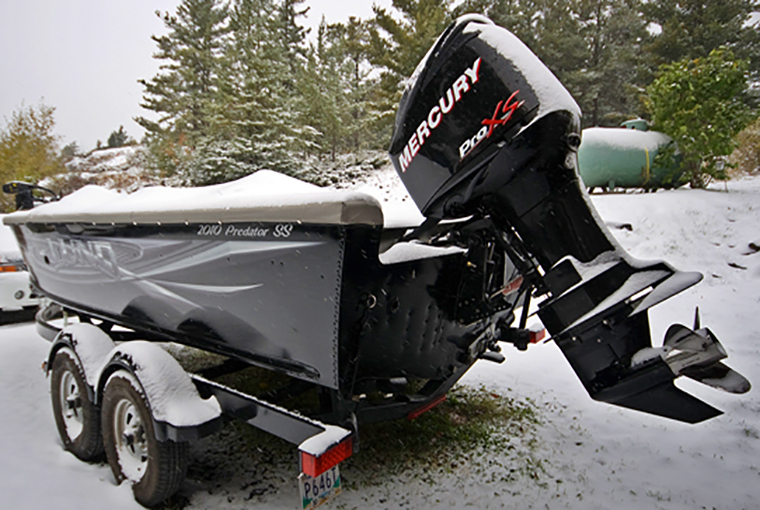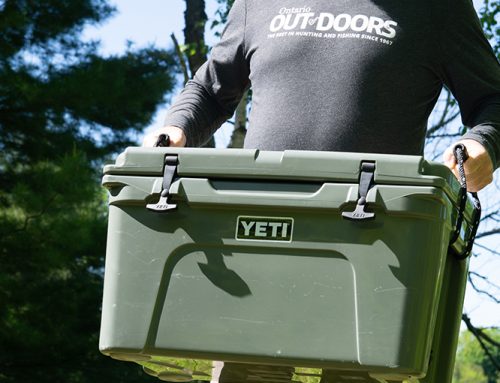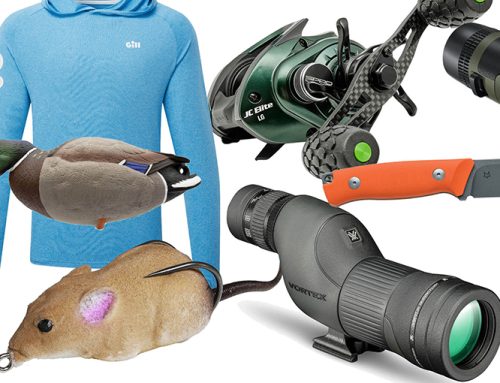
Anglers have a lot to look forward to during fall. Lakes are uncrowded and fish are usually hitting. I love being in the boat and enjoy every minute on the water. This time of year is always a bit depressing, though, as another open-water season is nearly over.
It’s time to put the boat away. If you want to keep it in good shape and ready to go again when the ice goes out, properly winterizing your rig is important.
A number of procedures can be done to keep your boat in great working order. But, getting an expert to look at your engine or to do the winterizing for you is sound advice. Marine service shops across the province can quickly and easily look after your boat, as well as shrink-wrap and store it. Not only will experienced mechanics know what needs to be done to prepare boats for winter, they will also be able to diagnose any potential problems, so they can be fixed before spring.
I recently caught up with Service Manager Reese Wickham from K-Sports Marine in Kenora to get the lowdown. He says the first thing they do with motors is drain and refill the oil in the lower unit. “You can’t leave the lower unit empty, because there will be no oil on the gears and the air will cause them to rust over the winter, which will cause problems in spring.”
Wickham adds that boaters should also run fuel stabilizer through their motors on their last outing. If you forget, service shops can do this for you. They will also drain the carburetor and filter of fuel and fog two-stroke engines with fogging oil, or change the engine oil and filter on four-stroke engines, to ensure there’s no contaminated oil left.
“If you put quite a few hours on your motor, bring it in to a dealership and get it looked after,” said Wickham. “If something needs to be replaced, we can do it. And, you can be rest assured your rig will be ready come spring.” I will not even get into in-board motors; they’re more complicated. Bring them in to someone who knows what they’re doing.
Boat batteries also need to be maintained. They should be charged and then disconnected. This includes trolling-motor batteries. If left connected, the slight draw on them over winter will kill them.
An unintentional problem many people experience, says Wickham, is leaving water in livewell lines, which can freeze and cause them to split. If they do, they will fill your boat with water when you use your livewell the following year. A simple solution is to pump plumber’s antifreeze through the livewell system to flush out any water.
If you leave your boat in the water for an entire open-water season, when it is pulled out, immediately wash the algae off the hull. If left to dry for a week or two, it might take major elbow grease to clean off.
Having a professional shrink-wrap your boat is a good idea to keep moisture and critters out. But, make sure the interior is clean and dry before you do so. If your boat is stored outside during winter, you can also tarp it yourself. Build some sort of internal frame to hang the tarp over to keep snow and water from pooling up and finding their way into your craft. There are also commercial kits for self-storage.
Give your boat the care it deserves now and you will be ready to get back on the water and catch fish as soon as the ice goes out next spring.






Leave A Comment